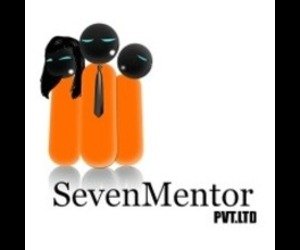Mumbai’s tech industry is booming — and so is the competition for full stack developer roles. Whether you’re applying at a startup in Powai or an MNC in Andheri, interviews in Mumbai’s IT sector are designed to test your practical understanding, problem-solving skills, and adaptability.
If you’re preparing for your next Full Stack Developer interview in Mumbai, this guide will help you get ahead. We’ve compiled the top 10 most frequently asked questions, along with helpful explanations and preparation tips.
1. What technologies do you use in your full stack projects?
Why they ask: Interviewers want to assess your exposure across both front-end and back-end technologies.
How to answer:
Mention the specific stack you’ve worked on — for example, MERN (MongoDB, Express.js, React, Node.js) or MEAN (MongoDB, Express.js, Angular, Node.js).
Explain one project briefly to show how you integrated these technologies.
2. What’s the difference between REST and GraphQL APIs?
Why they ask: To test your understanding of modern data-fetching methods.
How to answer:
REST APIs use multiple endpoints for different resources, while GraphQL allows fetching data from a single endpoint with customized queries.
Add that Mumbai-based companies increasingly use GraphQL for scalability and performance.
3. How do you ensure website performance optimization?
Key points to cover:
-
Minifying CSS/JS files
-
Lazy loading images
-
Using Content Delivery Networks (CDNs)
-
Implementing server-side caching
Companies like TCS, Capgemini, and LTI Mindtree in Mumbai often evaluate developers on performance tuning skills.
4. Explain MVC architecture and its benefits.
MVC (Model-View-Controller) separates data, logic, and UI components — making code organized and scalable.
It’s a fundamental concept for full stack roles, especially when working with frameworks like Express.js or Django.
5. How do you handle authentication and authorization in a web app?
Expected Answer:
By using technologies like JWT (JSON Web Tokens), OAuth, or Passport.js for user authentication.
You can also mention implementing secure password hashing (bcrypt) and session management.
6. What is the difference between SQL and NoSQL databases?
SQL: Structured data with fixed schemas (e.g., MySQL, PostgreSQL).
NoSQL: Flexible schema for unstructured data (e.g., MongoDB).
Most Mumbai-based startups use MongoDB or Firebase for quick development and scalability.
7. What version control system do you use?
Interviewers expect you to be familiar with Git and GitHub for collaborative projects.
Mention how you use branching, commits, and pull requests in real projects.
8. How do you handle cross-browser compatibility issues?
Answer Tip:
Test your code using tools like BrowserStack or Chrome DevTools.
Follow standard HTML5 and CSS3 practices to ensure consistent user experience.
9. Describe a project you’ve worked on from scratch.
This question checks your ability to plan, design, develop, and deploy applications end-to-end.
Talk about a practical project — for instance, an e-commerce dashboard or portfolio website — and mention how you deployed it on AWS or Netlify.
10. What do you think makes you a good Full Stack Developer?
Answer Tip:
Highlight your ability to work across multiple technologies, debug efficiently, and continuously learn new frameworks.
Companies in Mumbai value developers who are solution-oriented and team players.
Where to Learn and Practice These Skills
If you want structured preparation and real-time interview training, join the
Full Stack Developer Course in Mumbai by SevenMentor.
It offers:
-
Hands-on live projects
-
Interview preparation with experts
-
Mock tests and placement guidance
-
Industry-based assignments for Mumbai job profiles
Final Thoughts
Full stack developer interviews in Mumbai go beyond theory — they test how well you can apply your skills in real-world situations. By mastering these top 10 questions and practicing real projects, you’ll stand out as a confident and job-ready candidate.







